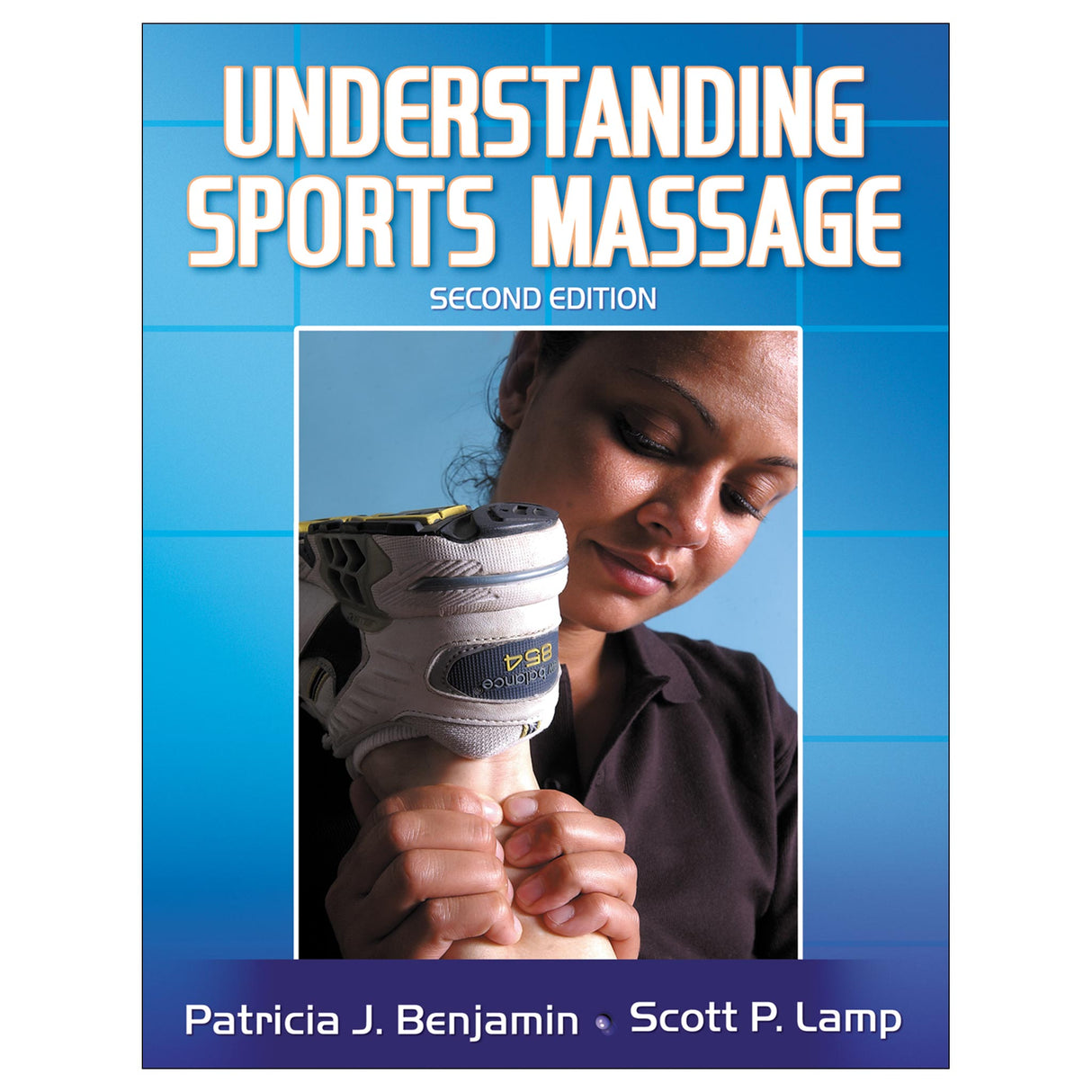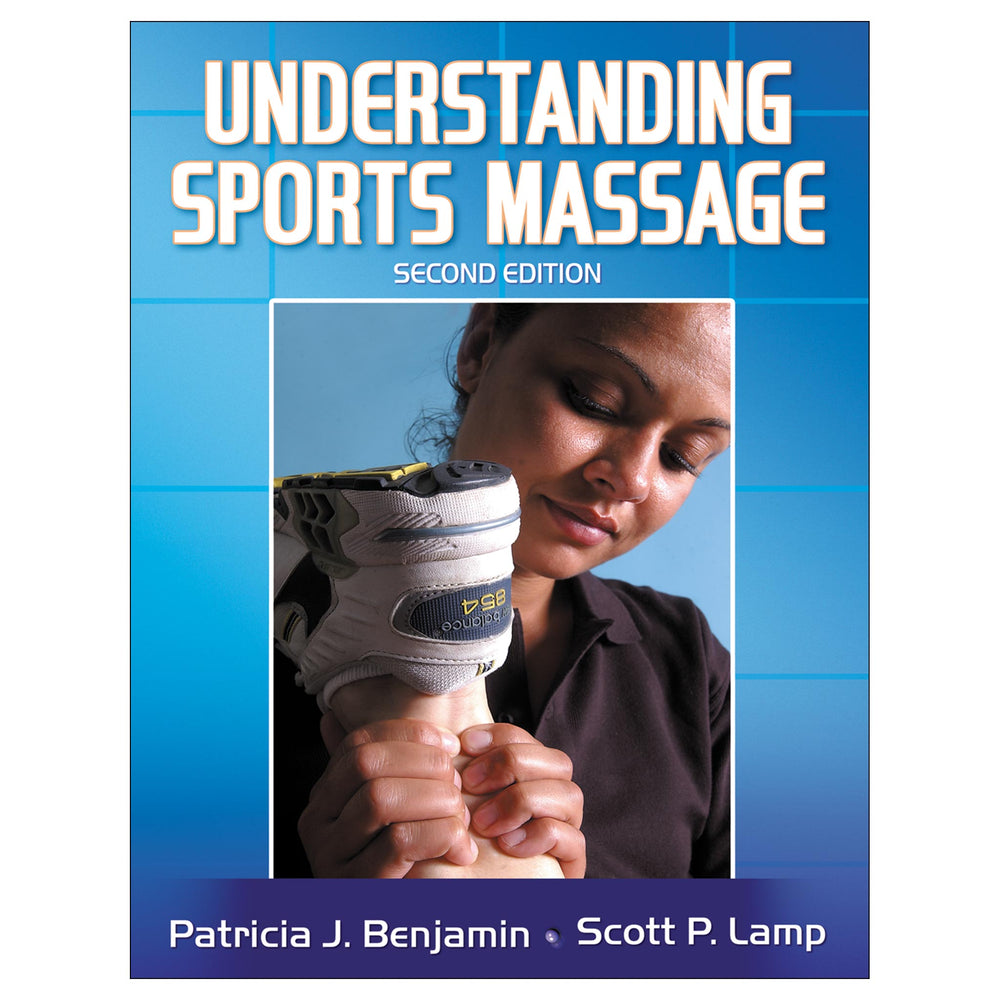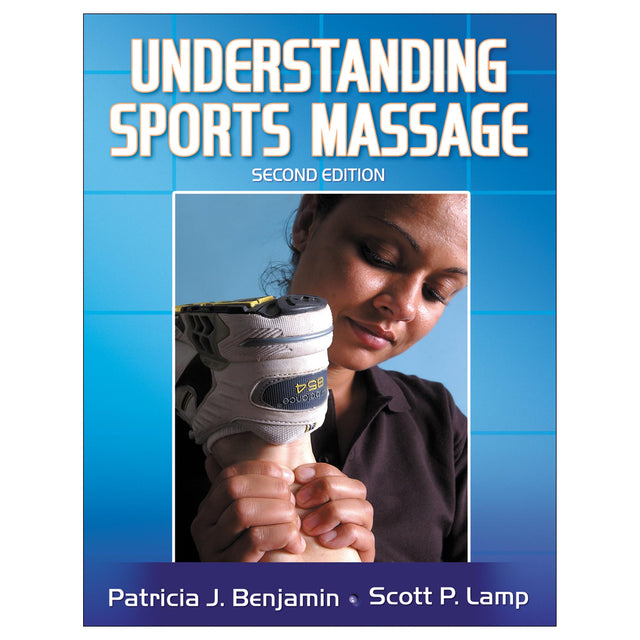Understanding Sports Massage - 2nd Edition
Author: Patricia J. Benjamin, Scott P. Lamp
$29.00 CAD
Updated and invigorated, Understanding Sports Massage, Second Edition, provides readers with an understanding of the fundamental theory and practical basis for using sports massage to keep athletes in top shape, recover from injuries, and improve performance. Like the successful first edition, Understanding Sports Massage is ideal for sport professionals and students in sports massage training programs. The book illustrates and explains massage techniques in detail and describes the procedures involved in conducting effective sports massage sessions, including determining goals, organizing the session, and choosing and applying techniques.
In addition to serving sport professionals, the new edition of Understanding Sports Massage will be useful to coaches, athletes, and teachers. They will be introduced to massage techniques that they can learn and apply in nonmedical situations such as in warm-ups, preparing for and recovering from competition, reducing the potential for injuries, and aiding in injury rehabilitation.
Understanding Sports Massage, Second Edition, also features many updates and improvements from the first edition:
-Nearly 100 photographs demonstrate proper technique.
-New two-color presentation highlights specific elements of the photos and text for a clearer understanding of the techniques presented.
-Updated and expanded material throughout the book includes new sections on medications and massage, specialized massage techniques, and joint movements and stretching; an updated trouble spots form; more examples of remedial and rehabilitation applications; and a description of the increasing use of sports massage in integrative sports medicine settings.
This text helps readers put theory into practice, first explaining the scientific underpinnings of sports massage and then describing in detail how to apply those concepts in a massage session.
This “how-to” approach extends to its planning and programming sections, in which the authors lay out the finer points of giving sports massage and then guide readers in implementing sports massage programs in various settings. The program-development portion of this book provides practitioners with detailed advice from the authors, who are well respected for their expertise and program-development skills. They address how to implement sports massage programs in various settings and how sports massage specialists cooperate with other sport and health professionals to provide the best possible care for athletes.
The result is a comprehensive and richly detailed guide to providing the best sports massage in a variety of settings and to developing a top-notch sports massage program in a school or university, a health club or organization, or a clinic or private practice.
Audience
Text for courses in sports massage and sports medicine; reference for athletic trainers, sport physical therapists, massage therapists, sport physicians, coaches, and other sport professionals.
Chapter 1. Theory and Science of Sports Massage
-Definition of Sports Massage
-The Many Uses of Massage in Sports
-The Sports Massage Specialist
-The Whole-Athlete Model
-Sports Massage and Athletic Performance
-Evidence for Effectiveness
-Constellation of Effects
-Contraindications and Cautions
-Medications and Drugs
Chapter 2. Techniques and Basic Skills
-Building Blocks of Sports Massage
-Hand and Finger Positions
-Basic Massage Techniques
-Basic Joint Movement Techniques
-Specialized Massage Techniques
-Palpation
Chapter 3. Restorative Sports Massage
-Restorative Massage and Its Applications
-Recovery Massage
-Remedial Applications
-Rehabilitation Applications
Chapter 4. Sports Massage at Athletic Events
-Event Sports Massage
-Pre-Event Sports Massage
-Inter-Event Sports Massage
-Post-Event Sports Massage
-Hyperthermia and Hypothermia
-Relieving Muscle Cramps
-Event Sports Massage at a Swim Meet
Chapter 5. Maintenance Sports Massage
-Overview of Maintenance Sports Massage
-Common Problem Areas
-Maintenance Massage Using Oil
Chapter 6. Planning and Giving Sports Massage
-Sports Massage Sessions
-Planning a Session
-Sports Massage Routines
-Logistics of Giving Sports Massage
-Aspects of Technique Performance
-Monitoring Progress and Pain
Chapter 7. Implementing a Sports Massage Program
-Sports Massage Programs
-School and University Programs
-The Athlete's Support Team
-Athletic Organizations
-Organized Sport Events
-Health Clubs
-Private Sports Massage Practices
-Integrative Sports Medicine Clinics
Appendix A. Sanitary Guidelines for Sports Massage at Events
Appendix B. Massage Licensing Laws
Test Package. The test package, created with Respondus 2.0, includes a bank of 151 questions (20-25 per chapter) specially created for the second edition of Understanding Sports Massage. A variety of question types are included, such as true-or-false, fill-in-the-blank, multiple-choice, essay, and short-answer, that cover the key information of each chapter. With Respondus LE, a free version of the Respondus software, instructors can
- create print versions of their own tests by selecting from the question pool;
- create, store, and retrieve their own questions;
- select their own test forms and save them for later editing or printing; and
- export the tests into a word-processing program.
A Respondus upgrade also offers the capability to create and manage exams that can be published directly to Blackboard, eCollege, WebCT, and other course management systems. Instructions for downloading a free version of Respondus are included in the test package.





